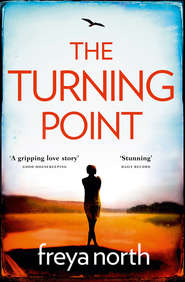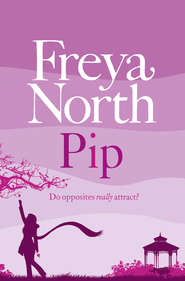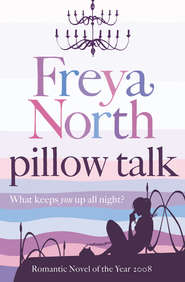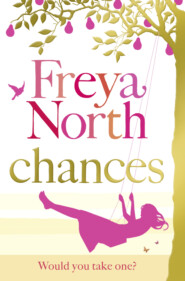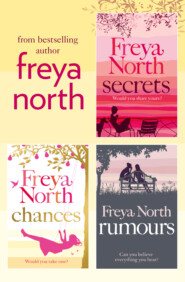По всем вопросам обращайтесь на: info@litportal.ru
(©) 2003-2024.
✖
The Turning Point: A gripping love story, keep the tissues close...
Автор
Год написания книги
2019
Настройки чтения
Размер шрифта
Высота строк
Поля
Jenna needn’t have worried; Scott was at Vancouver airport with time enough to do a little work. He could have gone through to the lounge – they were flying him over business class – but the place he always favoured was right in the middle of the International terminal, in an amphitheatre of sorts dominated by the immense sculpture of The Spirit of Haida Gwaii, a vast jade-coloured bronze canoe filled with symbolic figures of First Nations legend. He sat on a lower tier and set his laptop up on his knees. Somehow, amidst the thrum of people in transit he could concentrate far better than in an airport lounge clogged with the conversations of self-important businessmen. He hadn’t checked his emails for a couple of days and ploughed through them, reading each carefully if only to answer them with his characteristic one or two spare sentences. His agent had emailed to say he needed to speak to him and it surprised Scott to see the missed calls on his phone from yesterday. Had he not checked it since then? He called him to apologize.
His relationship with his agent was a strong one stretching over almost two decades but the business side of his career bored Scott and he found himself listening to the sound of his agent’s voice rather the content of his words. For Scott, even in spoken tones, there was music to the human voice and just now, his agent talking combined with the rhythm of rush in the terminal. To his left, seated a tier up and in a world of their own, young lovers clung to each other, forehead to forehead, eyes transmitting the depth of their goodbye. To his right, his guitar. In his head, suddenly, an idea.
‘I have to go,’ he told his agent. ‘I need to work. I’ll call you from London.’
For a few minutes more, Scott focused fully on the couple, disparate melodies flitting through his mind as the music formed. But the young woman whispered to her lover and they both glared at Scott before moving away, hand in hand, disconcerted. Scott felt simultaneously awkward yet amused. He looked around, surprised that no one else was sitting here. He made another call.
‘Hey kiddo. It’s Scott.’
‘Hey man. I know it’s you – your name comes up, right?’
Scott always enjoyed the fact that the kids saw him as both cool and yet pretty dorky. It made mentoring them touching and amusing, alongside the work and responsibility.
‘I missed your call yesterday – I’m heading for the United Kingdom. But it’s cool for you to use the studio at the weekend. You guys need to focus, eh? Three songs in as many months does not make a great band, Jonah. It’s two and a half, really – you need to work on “She Moves”. You need a killer middle eight – not a middle bleugh.’
‘OK.’
It sounded to Scott as though Jonah was standing to attention. He didn’t want to compromise the kid’s confidence. ‘If you can do that,’ he continued, ‘I think “She Moves” might be your best song.’
‘Good enough for the Festival next year?’
‘You never know.’
‘Cool.’
‘Good,’ said Scott. ‘And Jonah – no wine, no women, no weed.’
Jonah’s protestations made Scott smile. The kids were fifteen, sixteen years old and touchingly serious about being the best band Pemberton had ever produced. They themselves decreed no distraction during band practice.
‘I’ll catch up with you next weekend,’ Scott said. ‘We’ll see if you’re ready to do a set at the Pony next month.’
Jonah’s gratitude tumbled out unchecked.
‘I have to go,’ Scott interjected. ‘They’ve called my flight.’
An airport terminal filled with all types ready to journey up to the skies and off into the world. Departures and arrivals, bound by time. Suitcases with condensed versions of home crammed inside. Stress and hurry, excitement, irritation, joy and sadness. For Scott, there was music in it all.
* * *
London changes quickly. Very quickly. Transient and restless, buildings and commerce and people are constantly in flux. In and out, up and down and out, at breakneck speed. When she lived there, Frankie saw this as a quality; that the city and its inhabitants were progressive and enterprising, pioneering even, and somehow more alive than in any other city. But that afternoon, the rush and pace seemed to blow through the streets malevolently, scuffing up the debris on the pavements, causing pedestrians to rustle against each other as if an ill wind was to blame. When she’d lived in London, Frankie had fed off the brittle energy. Now, back again, she felt bulldozed by it. Only nine months away from it all, suddenly she was the country mouse who didn’t know the etiquette of pavement pacing or jaywalking or cramming oneself into the nooks of a crowded underground carriage. She was walking and walking and not seeming to get anywhere. She was the foreigner now, the stranger in town – returning to a city inhabited by a multinational cabal in a self-centred rush. If Alice ever gave her the chance, she had a series planned for older readers called The Metromorph. As she melded herself into a space amongst the throng in the underground, she scrabbled around in her head and focused on the ideas she’d stored rather than the smells permeating from all those bodies.
A passenger standing right by her spat on the floor. She thought of Annabel and Sam and Norfolk and felt a pang for what was now home. She thought of the sea, the briny mass that had in recent months benevolently pushed its energy right into her when she stood at its edge. She thought of the oversized sky that seemed to brag and boast its extravagant cloud formations by day and its effervescence of stars at night. It was a well-known joke, to say that Norfolk people had ‘too much sky’ as if it wasn’t good for them. Just then, in the choke of human gridlock, Frankie couldn’t disagree more. She didn’t hate London, she’d been born and bred there. But for the first time she felt truly confident in her decision to leave.
And that’s why, when Scott touched her arm and said excuse me – can you help – I guess I’m a little lost, Frankie turned to him and, with some pride, said sorry, I’m not from around here either.
The publishers had cake and compliments laid out and called her Frankie Darling all afternoon. She lied through mouthfuls of gateaux and brushed away the reality of her Writer’s Block as though it was just cookie crumbs. Oh yes, the new book is coming on just fine – you’re going to love it – I think it may even be my best yet.
‘Alice,’ Frankie told everyone, ‘is on top form. She’s having a blast.’
The Alice books had been the company’s biggest children’s seller in the age range last year and Frankie had been twice nominated for the Guardian Children’s Fiction Prize. She was truly their golden girl but oh, the frustration of this particular author refusing to divulge the teeniest clue about the new book. Come on Frankie Darling – give us a snippet.
In between meetings, Frankie sat in her editor’s office and the two of them swivelled rhythmic half-circles on the office chairs.
‘You seem a little – out of sorts – darling. And you keep ignoring my calls.’
Frankie looked up sharply, off her guard and on the defensive. Though she was aware that she had a duty to reveal just how acute her Writer’s Block was, suddenly she felt ill prepared and reluctant.
‘I’m fine! Honestly!’
‘I think I know what’s wrong,’ Michael told her. ‘I think I know. We’ve known each other many years, Frankie. I can see you so clearly sitting at your kitchen table, or gazing out of windows for hours on end wondering what you’re going to do, how to tell people, worrying about what everyone will say. I’ve guessed. I know.’
‘She’s lost,’ Frankie mumbled. ‘I haven’t seen her – for weeks.’
There was a pause. ‘Sorry?’
‘I can’t find her. It’s like she’s run away.’
‘Run away? Who?’ Michael was used to his authors darting off at tangents only to reappear halfway through internalized conversations. He’d found it was usually best to carry on regardless. ‘Do you remember when I split up with Gerry and moved to Surrey? All my high hopes that Chobham was the centre of the universe and the answer to all my problems? Pretty quickly I hated it, yearned for London. And Frankie – Norfolk’s far more remote.’ He looked at her kindly. ‘No one will think any less of you if you come back to town.’
It wasn’t about Alice.
This wasn’t about Alice at all.
And she thought, Alice – that’s one lucky escape we’ve just had.
‘And Frankie,’ Michael said, ‘about Alice – I really do want to see something soon. We don’t even have a title.’
* * *
Michael’s words reverberated in Frankie’s ears as she elbowed her way into the underground, trying not to breathe in the swarm of the rush hour as the train lurched and rumbled on its way. Stop start stop start; more people oozing into a carriage now devoid of personal space. God this journey was far more stressful than belting to school late again. Mr Mawby loped slowly into Frankie’s mind’s eye and the image soothed her. Mr Mawby and his tractor; a man whose working day was long and constant but somehow conducted at a pace that was as dignified as it was productive. He didn’t strike her as the type of worker who missed deadlines, unlike most of the stressheads in this carriage. He called her children Brocky and Emma Belle and he’d extended them his gruff welcome from the start, letting them sit in his tractor and swing on the creaky gate and climb the straw bales that surrounded his precious sugar-beet heaps in the autumn. She ought to make more of an effort, really; find the time to pass the time with a little chat now and then. She’d only ever seen Mrs Mawby from a distance, a rather lonely sight standing on the doorstep of their somewhat plain farmhouse surrounded by barns and outbuildings in harsh corrugated steel. What would Mr Mawby make of the rush hour? And Frankie thought he’d probably just laugh and denounce it as a load of old squit.
Thoughts of Norfolk provided a surprising and welcome steadiness to the rest of the journey and now here’s the hotel, a stunning exposition of expensively understated design. They’ve upgraded her to a junior suite and all is suddenly very good with the world. She can have a bath free of soap-scum tidal marks and swathe herself in cloud-soft towels.
And in the foyer, reading his book over a coffee, Scott thought: that’s the woman I saw earlier, who didn’t know her way either. Well what do you know – this town isn’t so big after all.
He watched as she left the front desk, her head tipped back to take in the soaring triple-height atrium, almost tripping over her feet in the process. He saw how she was grinning at everything. It made him smile and, just for a moment, Scott felt something intense and forgotten, a sensation that flipped his stomach and dried his mouth. He couldn’t remember if the feeling was welcome or a warning. And then he thought, for Chrissake, just quit the contemplation and go walk up an appetite instead.
As lovely as her room was, there was only so much daydreaming Frankie could do out over gracious buildings to the Thames in its timeless flow beyond. She’d assessed all the dinky little miniatures bejewelling the interior of the minibar, eaten half a jar of caramelized nuts, put a selection of the toiletries into her bag for Annabel and flicked through all the TV channels finding nothing to watch. There wasn’t anything on the room-service menu she fancied and, though she contemplated the snowy towelling robe and complimentary slippers, it wasn’t even six o’clock and she couldn’t possibly get ready for bed. It would be slightly pathetic. Maybe she’d go for a stroll and find somewhere for sushi. Maybe. And on her way, she’d go and have a cocktail, a grown-up drink at the bar downstairs, that’s what she’d do.
But there was an art to sitting nonchalantly at a bar on one’s own. She’d seen other women do it, admired and envied them, but whenever she tried it, she hated it. She’d simply felt awkward and conspicuous, sensing she was being stared at and then realizing no one was remotely interested at all. A clash of feeling exposed and feeling invisible, neither of which was good for the self-esteem. But the Cosmopolitan she’d hastily ordered arrived before she could cancel it so she drank it down as if it was Ribena and then walked over to the vast console table loaded with magazines and newspapers, for something to take up to her room. And coming back into the hotel having walked up an appetite, Scott thought, she’s there again – that girl from before, and from before that. He thought to himself, once upon a long time ago, I knew how to do this because I used to do it a lot. I went up to women in hotels and bars. The antidote to boredom and aloneness. I knew all the steps of the mating dance; the perfunctory drink and small talk – the predictable prelude to sex and then dumb sleep.
Scott stopped. He looked at the bar area, noted a couple of women sitting alone exuding the telltale signs of confident expectation. Then he looked over to the lost girl from before, currently scratching the back of one leg with the foot of her other. That sensation accosted him again, like a zip being pulled sharply from inside. It was easy enough to walk past the bar with those slightly predatory sure-things because he just wasn’t interested. But the girl who intrigued him still standing like a flamingo? There were hot coals underfoot if he wanted to go that distance. Why should it make him smile that she appeared to be rearranging the hotel’s magazines? And now that he was so close, what actually was he going to do? He couldn’t even figure out what he was thinking about, let alone what it was he wanted to happen.
‘Excuse me,’ he said to the back of her head, ‘I think I’m a little lost.’
Frankie turned. She thought – I know you, don’t I? Perhaps I don’t.
‘Hi,’ he said.






